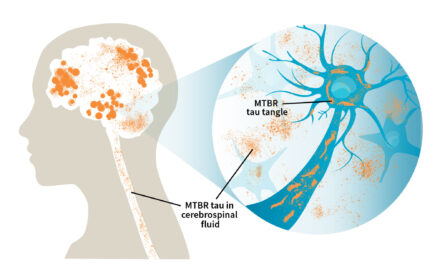Researchers at the University of Alabama at Birmingham (UAB) have discovered that interferon-gamma (IFNγ) plays a key role in driving brain pathology in a mouse model of multiple system atrophy (MSA). MSA is a rare and fatal neurodegenerative disease characterized by the presence of insoluble protein inclusions known as alpha-synuclein in oligodendrocyte cells in the brain. These inclusions lead to neuroinflammation, demyelination, and neurodegeneration. Oligodendrocytes are responsible for producing myelin, which is an insulating sheath surrounding nerve axons.
In a previous study published in Acta Neuropathologica in 2020, Dr. Ashley Harms and her colleagues at UAB showed that overexpression of alpha-synuclein in oligodendrocytes induced changes in a mouse model that resembled the pathology seen in post-mortem human brains affected by MSA. These changes included the infiltration of CD4+ and CD8+ T cells into the brain. In the current study, published in Acta Neuropathologica Communications, Harms and her team used genetic and pharmacological approaches to investigate the role of IFNγ in driving MSA.
The researchers demonstrated that IFNγ is predominantly produced by infiltrating CD4+ T cells and that it mediates the mechanisms responsible for the development of MSA. These findings suggest that IFNγ could be a potential therapeutic target for modifying the disease progression in MSA. However, further studies will be required to determine the optimal timing and duration of treatment. Currently, there are no known disease-modifying therapies for MSA.
The mouse model used in the study involved the use of an engineered virus to induce overexpression of human alpha-synuclein in oligodendrocytes. By deleting the transcription factor Tbet, which is required for IFNγ production in Th1 helper T cells, in the mouse model, the researchers observed a reduction in neuroinflammation, demyelination, and neurodegeneration.
To specifically investigate the role of IFNγ, the researchers administered IFNγ-neutralizing antibodies to the mice both before and during alpha-synuclein overexpression. They found that the antibody treatment attenuated neuroinflammation, reduced the infiltration of CD4+ and CD8+ T cells into the brain, and decreased demyelination.
The research team utilized a genetically modified mouse that expressed Thy1.1, a cell surface protein, in cells that produced IFNγ. By examining brain tissue from this reporter mouse after alpha-synuclein overexpression, the researchers identified CD4+ T cells as the primary producers of IFNγ. Other immune cell types, such as CD8+ T cells, B cells, natural killer cells, astrocytes, and microglial cells, were found to have minimal expression of IFNγ in response to alpha-synuclein overexpression.
Dr. Harms commented, “These data suggest that CD4+ T cell effector subtype, Th1 cells, are facilitating the disease process via production of IFNγ. Together, our results show that CD4+ T cells drive multiple system atrophy pathology through IFNγ expression, while other immune cell types do not significantly contribute to IFNγ production.”
These findings have important implications for the development of targeted therapies for MSA. The identification of IFNγ as a crucial mediator of disease pathology provides a potential avenue for intervention to modify the progression of MSA and improve patient outcomes. However, further research is required to fully understand the timing and duration of IFNγ-targeted treatment in MSA.
*Note:
1. Source: Coherent Market Insights, Public sources, Desk research
2. We have leveraged AI tools to mine information and compile it



